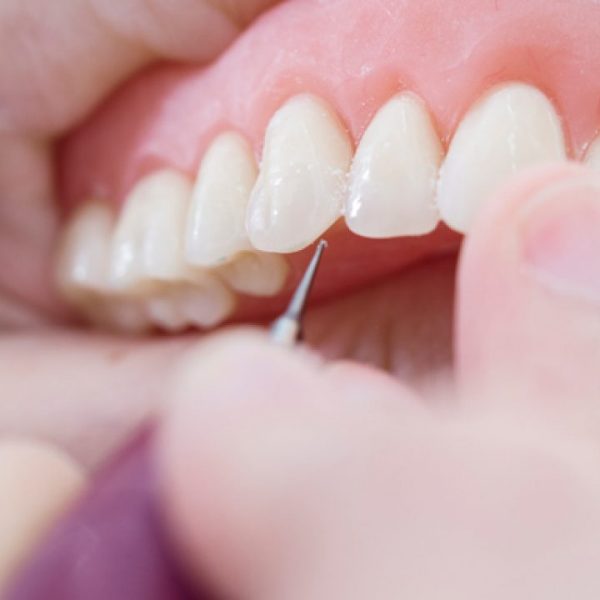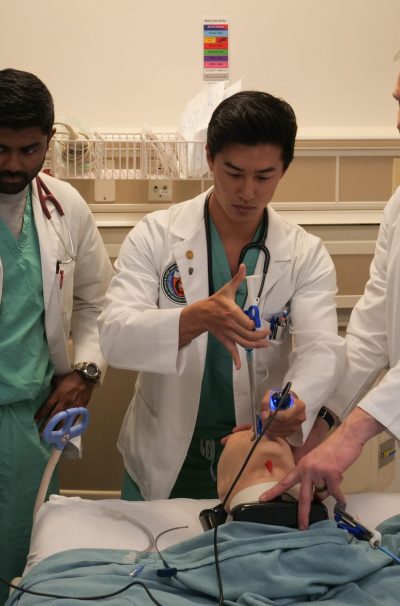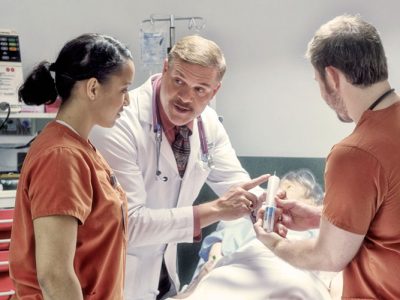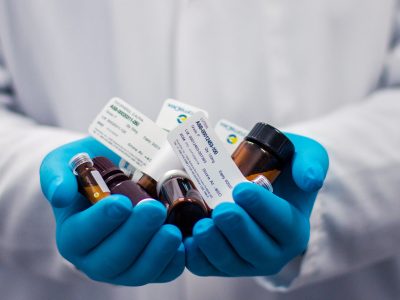Programs
Preparatory/Foundation Year Program
Foundation years play an essential part in helping international students adjust to academic and cultural life in a different country. Studying abroad is exciting and can open up a world of opportunities for students, but it is also a huge commitment and can be an overwhelming experience for even the most confident academic adventurers.
Foundation years for international students include language courses, giving new arrivals a sometimes vital opportunity to improve their communication skills before starting a ‘proper’ degree. It is also a great way to make friends, get to know the place you are studying, and learn the intricacies of your new host culture without the added pressure that comes with starting a four-year undergraduate degree.

EDUCATIONAL LINE UKRAINE
Why go for a foundation year?
For international students, foundation years are a great way to get yourself settled into a totally new environment. In a sense, they make sure that when it comes time to start the actual degree, you are ready to hit the ground running, allowing you to fulfill your maximum potential. But some international students might be impatient to start their academic careers as soon as possible. After all, a foundation year means delaying long term career goals for another 12 months. It also means another year away from your home country. However, taking that extra year to prepare yourself for studying abroad might turn out to best decision you can make.
Feeling as prepared as possible means you can dedicate more time and energy to your studies, which inevitably leads to better grades. And considering some of the large expenses involved in studying abroad, taking an extra year to make sure you get real value for your money is an excellent investment of your time.
We all mature at different rates. Some people are lucky enough to know what they want to do from a young age, while others have a natural ability to focus on whatever task is in front of them. However, for many young people, things aren’t this straight forward. And if you don’t really know what you want to be when you ‘grow up’, making the right academic choices in high school is by no means an easy task!
For example, some young people need a few years of real-world experience before they can begin to understand who they are and what they want to do. Others might want to travel or simply enjoy a few years without the added pressure of academic expectations. Either way, foundation years are an excellent way for those late bloomers to get into higher education.

The Pre-Health Professions Program is a one-year (three-semester) certificate program specially designed to prepare non-national students for matriculation to the degree program in Medicine, Dentistry, Veterinary Medicine and Pharmacy.
The programs are designed around pre-medical and pre-health courses in English, Chemistry, Biology, Physics and Mathematics. The courses are delivered during the regular 1st and 2nd semesters (September – December and January – May) as well as the 9 week summer semester in June – July.
On successful completion of these accelerated programs, students would have completed credits towards normal matriculation for admission to degree programs in the Faculty of Medical Sciences and other Faculties.
The Pre-Health Professions Program puts you on a path toward your dream of
becoming a medical professional abroad.
EDUCATIONAL LINE UKRAINE
Medicine (MBBS)
The Bachelor of Medicine and Bachelor of Surgery (MBBS) also called Medical Degree (M.D. - Doctor of Medicine). Conventional modern medicine is sometimes called allopathic medicine. It involves the use of drugs or surgery, often supported by counseling and lifestyle measures. Degree program takes six years to complete, including preclinical and clinical throughout with patients and doctors. Degree in Medicine will train international students to become professional, compassionate doctors.
The program focuses on preparing students with extensive knowledge in medical sciences and clinical skills, to produce qualified and competent medical professionals who are equipped for the latest practices and developments in the industry. The curriculum places a strong emphasis on clinical training in medicine and surgery.
Course description during a general education in medicine, medical students learn the fundamentals of anatomy and diseases; how the internal organ systems work; the structure of the cells; and much more. The first few semesters of general medicine education often cover basic medical knowledge at the university. Medical students study basic medical and humanitarian disciplines such as Anatomy, Biochemistry, Genetics, Immunology, Microbiology, Pathology, Pharmacology, Physiology, Psychology and Sociology. Clinical disciplines start from the third year. The last six semesters require medical students to study through training within the institutional care system mixed with theoretical education at the university hospital. Fourth and fifth year student work as a doctor assistant.
EDUCATIONAL LINE UKRAINE
Branches of medicine
Anatomy
This is the study of the physical structure of the body.
Biochemistry
A biochemist studies chemical components and how they affect the body.
Biomechanics
This focuses on the structure of biological systems in the body and how they work, using a mechanical approach.
Biostatistics
Researchers apply statistics to biological fields. This is crucial for successful medical research and many areas of medical practice.
Biophysics
This uses physics, mathematics, chemistry, and biology to model and understand the workings of biological systems.
Cytology
This is a branch of pathology that involves the medical and scientific microscopic study of cells.
Embryology
This branch of biology studies the formation, early growth, and development of organisms.
Endocrinology
Scientists investigate hormones and their impact on the body.
Epidemiology
Researchers track the causes, distribution, and control of diseases in populations.
Genetics
This is the study of genes and their impact on health and the body.
Histology
This involves looking at the form of structures under the microscope. It is also known as microscopic anatomy.
Microbiology
This is the study of organisms that are too small to see with the naked eye, known as microorganisms.
Aspects of microbiology include bacteriology, virology, mycology (the study of fungi), and parasitology.
Neuroscience
Neuroscientists study the nervous system and the brain and investigate diseases of the nervous system.
Aspects of neuroscience include computational modeling and psychophysics. Some types of neuroscience are cognitive neuroscience, cellular neuroscience, and molecular neuroscience.
Nutrition
Nutritionists study how food and drink influence health, and how they can help treat, cure, and prevent different diseases and conditions.
Pathology
This is the study of disease. A pathologist often works in a laboratory, where they do tests — usually on a sample of blood, urine, or body tissue — to help diagnose diseases and conditions.
Pharmacology
This involves the study of pharmaceutical medications, or drugs, where they come from, how they work, how the body responds to them, and what they consist of.
Radiology
Radiologists use X-rays and scanning equipment during the diagnostic procedure, and sometimes as part of treatment, too.
Toxicology
A toxicologist studies poisons, what they are, what effects they have on the body, and how to detect them.
Apply Now what are you waiting for !
EDUCATIONAL LINE UKRAINE
Dentistry
Dentistry is a branch of medicine that focuses on the diagnosis, study, treatment, and prevention of various diseases and disorders of the oral cavity. Dentists are highly sought after medical professionals who can have a rewarding career in private practices and hospitals.
Top universities, medical colleges and other educational institutions in Ukraine offer study programs in dentistry on Bachelor, Master and doctoral level, Dentistry programs encompass the study of traditional clinical subjects with hands-on training following modern teaching methodologies. It is also typical for dentists to undertake further training in order to specialize, after earning their initial degree.
Numerous specializations are available, such as orthodontics, endodontic, dental medicine, oral implant ology, pediatric dentistry, dental technology, and dental surgery. You can choose between different modes of study for earning a degree in dentistry and enroll in a full-time program.
Start your search by taking a look at some of the most popular programs in dentistry listed below and contact us for more details.

EDUCATIONAL LINE UKRAINE
LIST OF BEST DENTAL SPECIALIZATIONS IN UKRAINE
A regular dentist usually treats individual patients. They deal with patients one at a time. On the other hand, a public health dentist deals with community or population based dentistry. Instead of focusing on single patients at a time, they focus on entire communities or sections of population.
In order to perform the above tasks, a dentist must possess specific set of skills and knowledge. If you want to build a decent career in this sector, you may select public health dentistry sub-discipline.
This area of specialization deals with two notable sub-disciplines of dentistry – oral pathology and oral microbiology. Oral pathology deals with diagnosis of oral diseases, disorders and conditions. Oral pathology plays an integral role in identifying the disease (and chart treatment plan accordingly). Oral microbiology deals with the study of microorganisms of the oral cavity.
This area of specialization deals with two notable sub-disciplines of dentistry – oral medicine and oral radiology. Oral medicine primarily deals with non-surgical treatment of oral diseases, disorders and conditions.
Oral radiology is also known as oral and maxillofacial radiology or dental and maxillofacial radiology. This branch of dentistry deals with diagnostic imaging techniques used to examine dental and adjacent structures. It helps identify diseases, conditions and disorders that exist in the dental and adjacent structures of patients.
It is the branch of dentistry that deals with the study of supporting structures of teeth. Examples of supporting tissues of teeth include – gingiva, alveolar bone. Periodontology deals with the diseases, disorders and conditions that affect these supporting structures.
Endodontic is a branch of dentistry that primarily deals with the study of dental pulp. It deals with the diseases, disorders and conditions that affect the dental pulp. A professional who practices this specialty is known as endodontic.
Conservative dentistry is a term used to describe a dental approach that focuses on restorative or cosmetic dental treatment that preserves as much of your healthy tooth structure as possible.
Preventative oral care and treatment is also an important factor of Conservative dentistry when it comes to preventing damage to healthy teeth from decay and cavities in the first place.
This discipline deals with the treatment of diseases, injuries, disorders and conditions that affect the mouth, dental structures, jaws and face. This branch of dentistry uses surgery to treat the disease, condition, disorder or injury that affects oral and maxillofacial regions.
Pediatric dentistry primarily focuses on children from birth through adolescence. Some pediatric dentists chose to specialize in oral care for children with special needs, specifically children with autism, varying levels of mental retardation, or cerebral palsy.
One of the most important components of pediatric dentistry is child Psychology. Pediatric dentists are trained to create a friendly, fun, social atmosphere for visiting children, and always avoid threatening words like “drill,” “needle,” and “injection.” Dental phobias beginning in childhood often continue into adulthood, so it is of paramount importance that children have positive experiences and find their “dental home” as early as possible.
Prosthodontics is also known as dental prosthetics or prosthetic dentistry. This branch of dentistry deals with using biocompatible substitutes to treat, rehabilitate or restore missing teeth, deficient teeth, missing oral or maxillofacial tissues etc. Treatment methods employed under this branch include – bridge, crown, centric relation, veneer, dental surgery, partial dentures etc.
Caring for your teeth and adjacent structures can help prevent the onset of many dental diseases, disorders and conditions! Preventive dentistry is a branch of dentistry that deals with the practice of caring for your teeth and adjacent structures to keep them healthy.
The Bachelor’s degree in Pharmacy offers theoretical knowledge and practical training in field of pharmaceutical sciences. The students have courses of organic and inorganic chemistry, biochemistry, pharmacology, physiology, etc.
To become a pharmacist the student has to obtain knowledge of therapeutic roles of drugs, pharmacodynamics, side effects, potential interactions between drugs, standards of pharmaceutical manufacturing and distribution. Furthermore, a pharmacist should be able to interpret this knowledge accessibly to patients.
The education of a pharmacist usually takes five years to complete. Students of pharmacy not only study within the classroom, but also gain real-world experience working alongside licensed pharmacists in various settings.
Most popular specializations in the field of pharmacy in Ukraine
Also known as a retail pharmacy, the community pharmacy is the most well-known type of pharmacy. It is this type that is most traditionally known as the pharmacist or chemist shop. A community pharmacist usually works in a store that provides the community with access to the medications they need, as well as advice to promote the safe and effective use of the medicines they provide. They can tell their customers what drugs may interact with each other or with alcohol, and help prevent dangerous or troublesome combinations or side-effects of medication. Helping patients with the reimbursement of drug expenses, supervising pharmacy technicians and keeping inventory of the drugs stocked also make up part of their duties.
A hospital pharmacy is the place where the management of medications occurs in a hospital, medical clinic or nursing home. A hospital pharmacist often works in close collaboration with other health professionals to ensure that the medication regimen for each patient is optimized to achieve the best outcomes. They may also be involved with clinical trials, as well as compounding medications for individualized dosing or sterile medications. Teaching, administrative functions in the selection, proper storage, distribution and prescription protocols of drugs, education of medical staff in the aspects of selection, administration and monitoring of drug safety, as well as assessing drug levels and drug safety may all be part of their work. Hospital pharmacists may be inpatient or outpatient pharmacists, and may also specialize in one or other area of pharmacotherapy.
The industrial pharmacy involves the pharmaceutical industry and includes the research, production, packaging, quality control, marketing and sales of pharmaceutical goods. An industrial pharmacist may work as a representative for a particular pharmaceutical company to advocate for the use of its products, as well as to inform practitioners about their actions and benefits.
A compounding pharmacy involves the production and preparation of medicines in new forms. This may include reformulating a powder tablet to a solution, which can assist in the administration of the drug for certain patients. A compounding pharmacist may work in a community, clinical or residential-based setting, depending on the purpose of their formulation. They may also dispense ready-made medications in some circumstances.
The ambulatory pharmacy provides healthcare services to many patients in rural areas, particularly to geriatric populations. These pharmacists help in the management of patients who are at higher risk of drug-related problems or disease complications due to lack of control over the condition. As ambulatory pharmacy is a mobile service that can meet patients where they are, and therefore help to reduce the number of hospital visits that their patients require. They are often directly or indirectly employees of a managed healthcare organization
Some pharmacists may specialize in a certain area of drug therapy with a master’s degree or other continued learning. This helps them to gain proficiency and recognition to practice in specialized fields.
Oncology pharmacy
Nuclear pharmacy
Geriatric pharmacy
Psych pharmacotherapy
Personal pharmacy
Nutritional support pharmacy
Hospice pharmacy
Pediatric pharmacy
Pharmacy benefit manager
Poison control pharmacy
Each of these specializations is a type of pharmacy in its own right, although such pharmacists usually practice in a hospital pharmacy. Their unique knowledge base makes it possible for them to provide medical information in particular relevant situations.
EDUCATIONAL LINE UKRAINE
Nursing
Ukraine knows the importance of nursing subject and that is the reason of quality education in this field at national medical universities in Ukraine. Theory and practical training at nursing faculties in Ukraine is taught by high profile lecturers and practical are held at modern hospitals.
Nursing degree from national universities of Ukraine is recognized worldwide. At nursing faculties in Ukraine many foreign students are admitted every year from every corner of the world. Nurses also serve as advocates for patients, families and communities. They develop and manage nursing care plans,
Instruct patients and their families in proper care and help individuals and groups take steps to improve or maintain their health.
To be admitted at any national medical university in Ukraine international students must have secondary school certificate. Mostly students at nursing faculties are studying from African countries. Many come from Asian countries and they require 10+2 certificate to be admitted.
EDUCATIONAL LINE UKRAINE
Engineering
Engineering is the application of science and math to solve problems. Engineers figure out how things work and find practical uses for scientific discoveries. Scientists and inventors often get the credit for innovations that advance the human condition, but it is engineers who are instrumental in making those innovations available to the world.
Engineers design, evaluate, develop, test, modify, install, inspect and maintain a wide variety of products and systems. They also recommend and specify materials and processes, supervise manufacturing and construction, conduct failure analysis, provide consulting services and teach engineering courses in colleges and universities.




EDUCATIONAL LINE UKRAINE
Most popular engineering courses in Ukraine
involves design, manufacturing, inspection and maintenance of machinery, equipment and components as well as control systems and instruments for monitoring their status and performance. This includes vehicles, construction and farm machinery, industrial installations and a wide variety of tools and devices.
involves design, testing, manufacturing, construction, control, monitoring and inspection of electrical and electronic devices, machinery and systems. These systems vary in scale from microscopic circuits to national power generation and transmission systems.
involves design, construction, maintenance and inspection of large infrastructure projects such as highways, railroads, bridges, tunnels, dams and airports.
involves design, manufacturing and testing of aircraft and spacecraft as well as parts and components such as airframes, power plants, control and guidance systems, electrical and electronic systems, and communication and navigation systems.
involves design, manufacturing, construction, operation and testing of equipment, systems and processes involving the production, control and detection of nuclear radiation. These systems include particle accelerators and nuclear reactors for electric power plants and ships, radioisotope production and research. Nuclear engineering also includes monitoring and protecting humans from the potentially harmful effects of radiation.
involves design, construction and inspection of load-bearing structures such large commercial buildings, bridges and industrial infrastructure.
is the practice of designing systems, equipment and devices for use in the practice of medicine. It also involves working closely with medical practitioners, including doctors, nurses, technicians, therapists and researchers, in order to determine, understand and meet their requirements for systems, equipment and devices.
is the practice of designing equipment, systems and processes for refining raw materials and for mixing, compounding and processing chemicals to make valuable products.
is the practice of designing computer hardware components, computer systems, networks and computer software.
is the practice of preventing, reducing and eliminating sources of pollution that affect air, water and land. It also involves detecting and measuring pollution levels, determining sources of pollution, cleaning up and rehabilitating polluted sites and ensuring compliance with local, state and federal regulations.
Oil and Gas Engineering program is designed to create future leaders of the industry. The wide range of subjects taught, including engineering, geology and chemistry, ensures that you will have a strong appreciation of all key elements of the industry lifecycle and of the different areas of engineering required, as an understanding of how they work together to deliver projects safely and efficiently.
The interdisciplinary nature of the program means it is suitable for students from different engineering backgrounds, including mechanical, civil, electrical, or chemical engineering, as well as other relevant engineering backgrounds.
Apply Now what are you waiting for !
EDUCATIONAL LINE UKRAINE
ECONOMICS/ BUSINESS/TOURISM/MANAGEMENT
Management
Management is a set of principles relating to the functions of planning, organizing, directing and controlling, and the application of these principles in harnessing physical, financial, human, and informational resources efficiently and effectively to achieve organizational goals.
Accounting and taxation
Tax accounting is the means of accounting for tax purposes. It applies to everyone, individuals, businesses, corporations, and other entities. Even those who are exempt from paying taxes must participate in tax accounting. The purpose of tax accounting is to be able to track funds (funds coming in as well as funds going out) associated with individuals and entities.
Hiring a professional tax accountant is optional for an individual, but often necessary for a corporation, as business taxes are more complicated than personal taxes.
International business
The study of international business involves understanding the effects that the above activities have on domestic and foreign markets, countries, governments, companies, and individuals. Successful international businesses recognize the diversity of the world marketplace and are able to cope with the uncertainties and risks of doing business in a continually changing global market.
International relations
The international relations involve studying world societies and the interactions between them. Students with a concentration in this subject area develop expertise in diplomacy and foreign policy.
Political Science
Political science deals with domestic and international governance. It is essential for experts in international relations to understand the governmental structures of different countries.
Computer science
Computer Science is the study of computers and computational systems. Computer scientists deal mostly with software and software systems; this includes their theory, design, development, and application.
Principal areas of study within Computer Science include artificial intelligence, computer systems and networks, security, database systems, human computer interaction, vision
and graphics, numerical analysis, programming languages, software, bioinformatics and theory of computing.
Although knowing how to program is essential to the study of computer science, it is only one element of the field. Computer scientists design and analyze algorithms to solve programs and study the performance of computer hardware and software. The problems that computer scientists encounter range from the abstract-determining what problems can be solved with computers and the complexity of the algorithms that solve them – to the tangible – designing applications that perform well on handheld devices, that are easy to use, and that uphold security measures.
Finance and banking
This type of program focuses on learning how banks and other financial institutions run. When combined with other general education requirements of a learning institution, Finance is a broad term that describes activities associated with banking, leverage or debt, credit, capital markets, money, and investments, Finance also encompasses the oversight, creation, and study of money, banking, credit, investments, assets, and liabilities that make up financial systems.
Applied economics
The program is for those who are interested in understanding how economic analysis can resolve issues encountered within the business environment. Students are expected to understand the importance of formal economic and econometric modeling frameworks and strategies emphasizing on the increasingly dominant role of mathematics and logic, achieve effective communication in conveying the essential aspects of economic policy and its implications through applied research and develop problem solving skills needed for business. Aside from incorporating mathematical and logical rigor, the curriculum encompasses important fields like corporate planning, financial economics, international trade and finance and money and banking.
Tourism management
Tourism Management is the leading international journal for all those concerned with the management, including planning, of travel and tourism. Tourism comprises a multitude of activities which together form one of the world’s fastest growing international sectors.
Tourism Management is aimed at providing students with the in-depth knowledge about tourism and hospitality trends. It involves both practical and academic study of tourism business, its operations, the behavior of tourists, trends in the tourism industry and its dynamics.
International economics
Economics is a social science that studies the behavior of social systems – such as markets, corporations, unions, international institutions, legislatures, and even families – through the lens of a unified analytical framework. The focus is on the way individuals make decisions and how those decisions add up, and interact with one another, to produce the social systems we observe. Ultimately, economics offers insights into the study and design of policies to improve the performance of the system.
Marketing
Marketing refers to activities a company undertakes to promote the buying or selling of a product or service. Marketing includes advertising, selling, and delivering products to consumers or other businesses. Some marketing is done by affiliates on behalf of a company. Marketing as a discipline involves all the actions a company undertakes to draw in customers and maintain relationships with them.
At its most basic level, marketing seeks to match a company’s products and services to customers who want access to those products.




